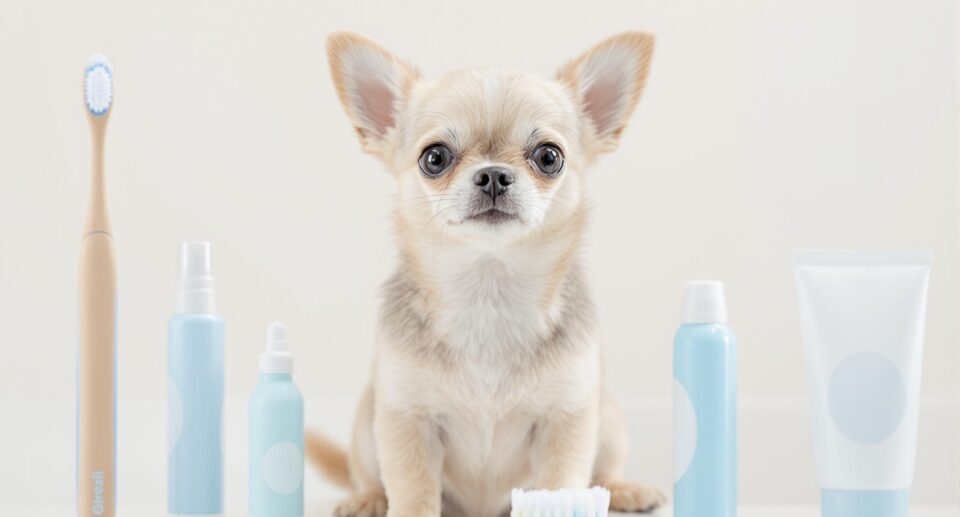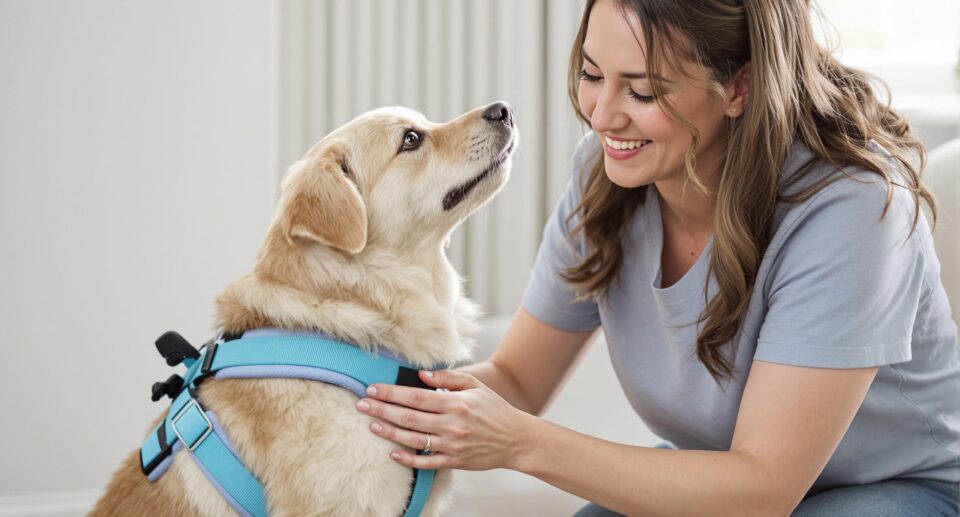All About Your Chihuahua: Care Guide and Breed Info

May 14th marks the biggest day of the year for the very smallest breed of dog. International Chihuahua Appreciation Day, founded by Chihuahua advocate Nadia Alteri, is a day to celebrate and raise awareness of these charming pint-sized pups.
Whether you have a Chihuahua of your own or just love learning about dogs, read on for the Chihuahua breed history, breed standard and traits, and best care to prevent and manage common health issues in Chis.
How The Chihuahua Breed Came To Be
The modern Chihuahua is believed to be a descendant of the ancient, extinct breed, the Techichi, bred and admired by the Toltec civilization in central Mexico in the 9th century. The Techichi was believed to have mystical powers of foresight and were said to have guided their humans in the afterlife. The breed was relied upon by the Toltecs as royal companions, for joining hunts in packs, and as a food source.
Unlike today’s Chihuahua, the Techichi was mute, and a bit larger and stockier. Cross-breeding with the Xoloitzcuintli (also known as the Mexican Hairless) may have given them their talent for barking to warn their human guardians of intruders. The Aztecs conquered the Toltecs in the 11th century and took over the breed, creating a smaller dog more similar to the dainty Chihuahua we know and love today.
The Chihuahua breed is named after the city in Mexico from which it originates. Through the 1800 and 1900s, the Chihuahua officially became an AKC recognized breed and gained popularity internationally, brought up from Mexico by tourists into the southern United States. Since then, the Chi has become an advertising icon, movie star, celebrity socialite sidekick, and well-loved companion dog, usually found curled up in their favorite human’s lap.
Chihuahua Breed Traits
Purebred, AKC-registered Chihuahuas can have a smooth or long coat that can come in many color variations, including sable, cream, chocolate, black, brindle, with solid, masked, or spotted markings.
According to the breed standard, a Chihuahua should have a round “apple shaped” head that may have a molera, or soft-spot, and may be no more than six pounds in weight.
As of the most popular dog breeds internationally as well as in the United States, it’s common for Chihuahuas to breed as strays, come from backyard breeders, or otherwise not officially fit within the breed standard. “Apple heads” refer to those that have a round skull and a short snout as specified in the AKC breed standard.
A “deer head” is an unofficial term that describes a Chi with features that deviate from the breed standard. Though they may not be eligible to compete in dog shows, “deer head” dogs are less prone to health issues associated with the brachycephalic features of the traditional “apple head’ skull structure.
Common Health Issues in Chihuahuas
Despite their small size, Chihuahuas are a surprisingly sturdy, healthy dog, with a lifespan of up to 20 years, and a somewhat lower risk of cancer compared to other breeds. Even so, the breed is predisposed to health issues that can put their wellness and longevity at risk.
Dental Issues in Chihuahuas
Chihuahuas are highly susceptible to dental issues. Their tiny mouth is prone to overcrowding, with nooks between their closely spaced teeth that trap plaque and tartar. They’re also susceptible to retained puppy teeth, in which their adult teeth grow alongside, rather in place of their baby teeth, causing even more overcrowding. What’s more, it can be difficult to reach all parts of their mouth with a toothbrush when brushing.
Along with daily at-home dental care, Chihuahuas need dental cleanings under anesthesia every six to eighteen months. Without proper dental care, Chis can suffer from gingivitis, tooth loss, abscesses, and spread of oral bacteria that can affect the heart, liver, and kidneys.
Heart Disease in Chihuahuas
One of the most common causes of death in senior Chihuahuas is heart failure due to a genetic condition called mitral valve disease, also known as chronic valvular disease (CVD). As the Chihuahua enters their senior years at around 8 to 10 years old, heart valves can begin to weaken and leak so the heart has to work harder to pump blood throughout the body.
Your dog may be diagnosed during a routine vet visit when your vet detects a heart murmur (abnormal whooshing sounds) when listening to your dog’s heart with their stethoscope. Most dogs with CVD never experience symptoms, but in those that reach advanced stages there may be signs of heart issues like exercise intolerance, coughing, fatigue, and fainting.
Tracheal Collapse in Chihuahuas
Chihuahuas are highly susceptible to tracheal collapse, in which the c-shaped sections of cartilage that make up the trachea, or windpipe, weakens and narrows, and the membrane that lines the opening of the “c” shape loosens, obscuring the airway. Physical trauma from leash pressure can exacerbate tracheal collapse. When taking your Chihuahua for a walk, always attach their leash to a comfy harness that does not place pressure across their neck. Your Chi can wear a lightweight collar to hold their ID tags, but it should never be clipped to their leash.
Caring For Your Chihuahua
Use a harness, not a collar to attach your dog’s leash to help prevent tracheal collapse
Brush their teeth daily with dog toothpaste
Use other dog dental products like VOHC-approved chews, water additives, and wipes or gels
See your vet annually for early detection of health issues that may not cause noticeable symptoms
Schedule a professional dental cleaning every 6 to 18 months
Use steps, ramps, or pick your dog up rather than allowing them to jump from beds, cars, and other heights
Socialize your puppy early and often
Feeding Your Chihuahua
Like many other small breeds, the Chihuahua may have trouble regulating their blood sugar as a puppy. During long stretches between meals, they can go into hypoglycemia and show signs like weakness, lethargy, and seizures. Low blood sugar episodes can be prevented by feeding small, frequent meals until your puppy is fully grown.
A small breed dog food is recommended, though not compulsory, for Chihuahuas. Small breed recipes are usually more calorie-dense than typical dog foods, packing more nutrients into smaller portions. They also tend to have a smaller kibble size that’s easier to chew.
Just a few ounces of excess weight can put an unhealthy strain on your Chi’s small frame. Some are picky eaters and self-regulate their food intake, while others have a seemingly endless appetite. For those that tend to gain excess weight, feed measured portions at mealtimes and opt for high-protein, low-fat, low-calorie treats.
Why We Love Chihuahuas
Chihuahuas are alert, high-energy, deeply loyal dogs that love being around their favorite people. Known for their Napoleon complex and fearlessness, Chis tend to be “one-person” dogs that are devoted to just one or two people. With early socialization and positive reinforcement, some can avoid developing a fear of strangers and learn to show their sweet, loving side to everyone they meet.
VISION
Every pet deserves to live a long, happy, healthy life.





